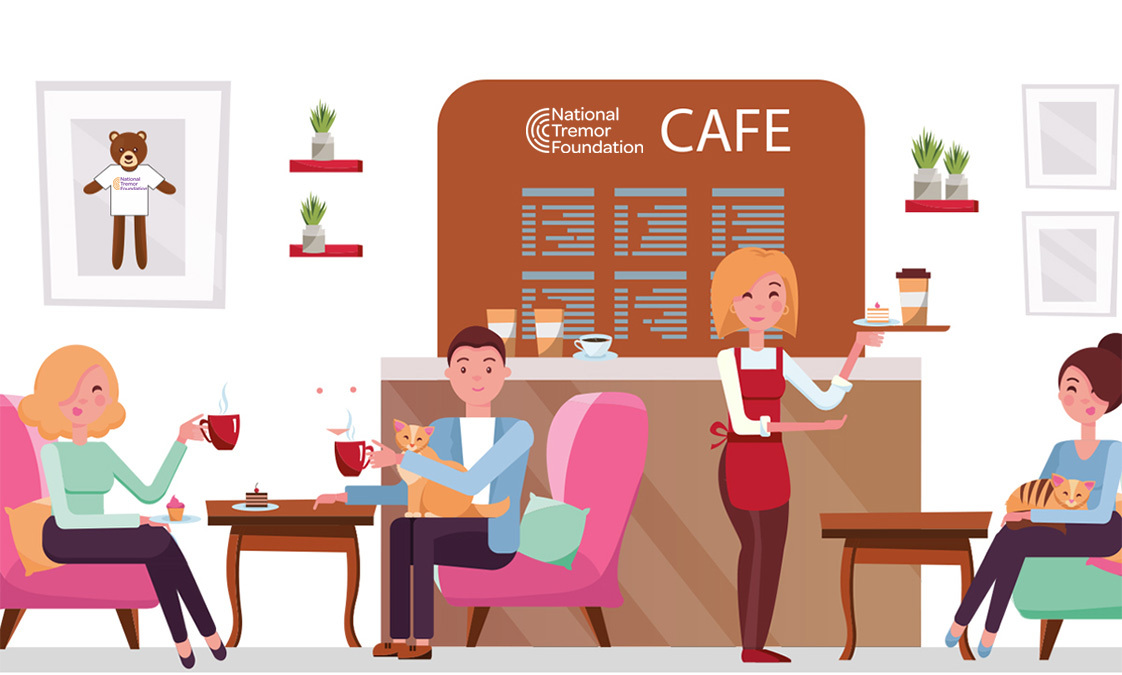
Attendance Allowance
If you are living with tremor you may have some concerns about how you'll manage financially.
There is some financial support available.
This information explains what Attendance Allowance is, who qualifies, how to claim and what information you need to supply when you claim.
What is Attendance Allowance?
If you've reached State Pension age, currently 66 years old, have an illness or disability, and you also need help with your personal care or safety, you may be able to claim Attendance Allowance.
This benefit is for you, not for a carer, and you don't need to have someone supporting or caring for you to qualify. If you do have a carer, they may be able to claim Carer's Allowance or National Insurance contribution credits.
Attendance Allowance is based on the help you need, not on the help you currently get. It doesn't matter whether you live alone or with other people, or if you get a lot of help or none.
The Attendance Allowance claim form is quite long, and can be difficult to fill in because it deals with personal care issues. But it's worth taking the time to do it, because getting Attendance Allowance can increase your weekly income.
If you need help filling out the form, you can contact our free confidential helpline to be put in touch with your Parkinson's local adviser.
Do I qualify for Attendance Allowance?
You're eligible for Attendance Allowance if:
- you are State Pension age
- you have had care or supervision needs for the last 6 months (the 'qualifying period')
- you have been living in the UK for 2 of the last 3 years and your immigration status doesn't prevent you claiming
- you are 'habitually resident' in the UK, and
- you are terminally ill, or
- you satisfy one of the disability tests
What are the disability tests?
To get Attendance Allowance, you must have a severe physical or mental disability (or both) that means you need:
- care from another person several times throughout the day to help with your 'bodily functions'. This can include help getting in and out of bed, getting dressed and undressed, washing and other personal hygiene needs, going to the toilet, taking medication, eating, cutting up food, drinking and communicating with other people, or
- continual supervision (being checked on or watched regularly – but not non-stop) throughout the day to make sure you're safe and/or not a danger to yourself or others, or
- care from another person at least twice each night, or for 20 minutes or more, to help you with your 'bodily functions' (as described above), or
- another person to be awake and watch over you to make sure that you're safe or not a danger to others, at least 3 times each night, or for 20 minutes or more each night.
How much will I get from Attendance Allowance?
Attendance Allowance is paid at 1 of 2 weekly rates, depending on the amount of help you need:
- The lower rate is £68.10 and applies if you need the above care or supervision throughout the day or the night.
- The higher rate is £101.75 and applies if you need care or supervision throughout the day and the night.
'Special rules' claims
If you're terminally ill and unlikely to live more than 12 months, you will be able to get the higher rate under 'special rules'.
In this case, your doctor, consultant or specialist nurse will need to confirm that you have a terminal illness (they can do this using a SR1 form, which they should keep at the surgery).
There is no 6-month 'qualifying' period for terminal illness claims. Under the rules, someone else can apply on your behalf with or without your knowledge. Special rules claims are reviewed every 3 years.
If you're terminally ill and live in Scotland, there is no 12-month rule, an award is based on medical opinion alone.
In 2023
In 2023 only, receipt of Attendance Allowance will trigger a one-off automatic payment of £150 that will be paid by 4 July 2023.
How do I claim Attendance Allowance?
You'll need to download the Attendance Allowance claim form AA1.
If you live in England, Scotland or Wales, you can also request the form by calling the Attendance Allowance helpline on 0800 731 0122 (textphone 0800 731 0317).
You can find out about Attendance Allowance eligibility in Northern Ireland or call 0800 587 0912 (textphone 0800 012 1574).
If the Attendance Allowance helpline sends you the claim form, it will be stamped with the date you asked for it.
If Attendance Allowance is awarded to you, it will be paid from this date, as long as you return the claim form within 6 weeks.
Once you've sent off the claim form, the Department for Work and Pensions (or the Disability and Carers Service in Northern Ireland) may contact your GP, specialist or Parkinson's nurse for further information, or it may send one of its doctors to your home to assess you before they approve your claim.
- Use an up-to-date claim form.
- Make a photocopy of the claim form once you've completed it.
- You normally have 6 weeks to complete the form, so take your time filling in the claim form – try to get help if you need it.
- Don't be afraid to write too much and add extra pages if needed – just remember to write your name and National Insurance number on each page.
- Don't underestimate your needs. If you have a carer, think about what it would be like without them. If you manage on your own, don't be afraid to make it clear how difficult it is for you.
- If an assessor visits you, try not to feel uncomfortable or be rushed into making hasty comments, such as "I can manage by myself". Keep in mind why you're applying for this benefit. If you live by yourself, you might have to manage by yourself – but if you get help you may be able to do things more effectively, or quicker, or without risk or pain. Let the assessor know if this is the case.
- Your condition may change throughout the day. It's important that you write down this information when you complete the claim form.
- If your condition changes from day to day, explain what you're like on an average or typical day, but also include what you're like on both a good and bad day. Write down how often you have both good and bad days (for example, "I have bad days around 4 days each week").
Take some time to think about how Parkinson's affects you. It might be helpful to ask yourself the following questions:
- Is dressing a problem?
- Is bathing or showering difficult?
- Do you need help cutting toenails or fingernails?
- How do you get out of bed?
- Do you find it difficult to start moving?
- Do you fall or stumble sometimes? If so, is it difficult to get up again?
- Do you need someone with you when you go outside?
- Does your condition change throughout the day?
- Do you have times during the day when you go 'off'?
- What's your handwriting like?
- What's your speech like?
For some of these points, it may also help to keep a daily diary of your care needs.
We would like to acknowledge the use of information taken from the Parkinson's UK website.












